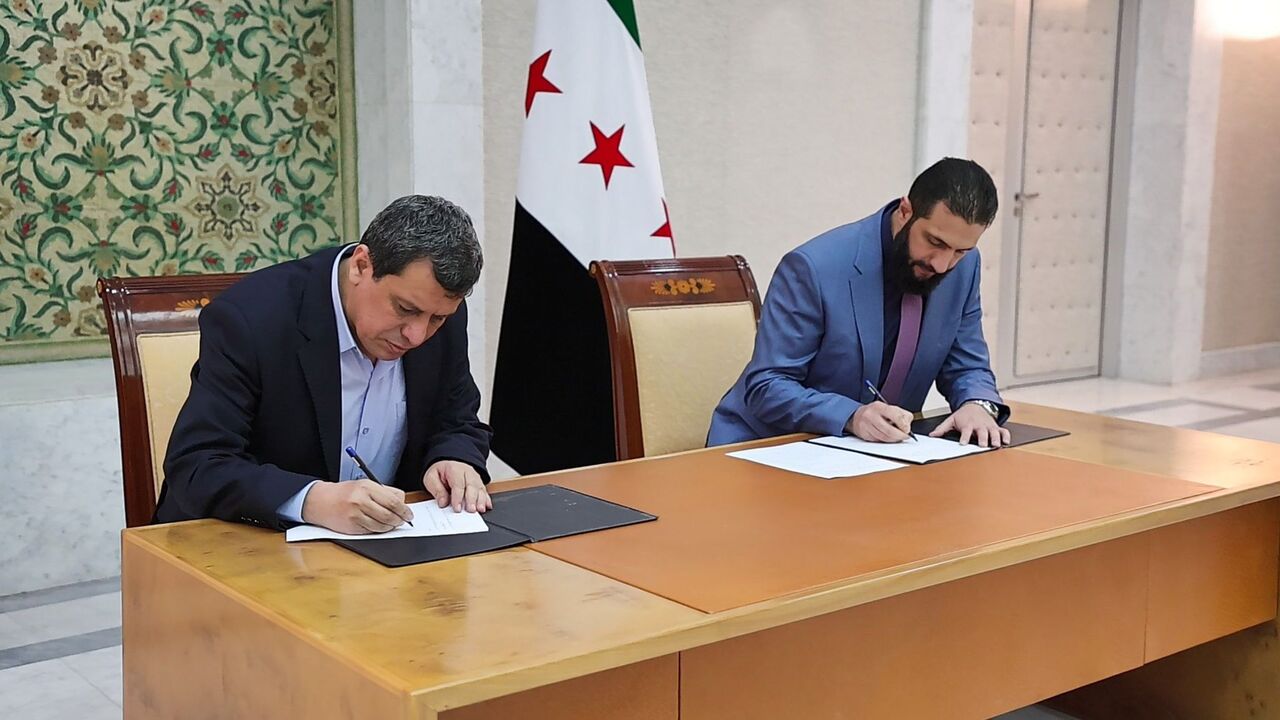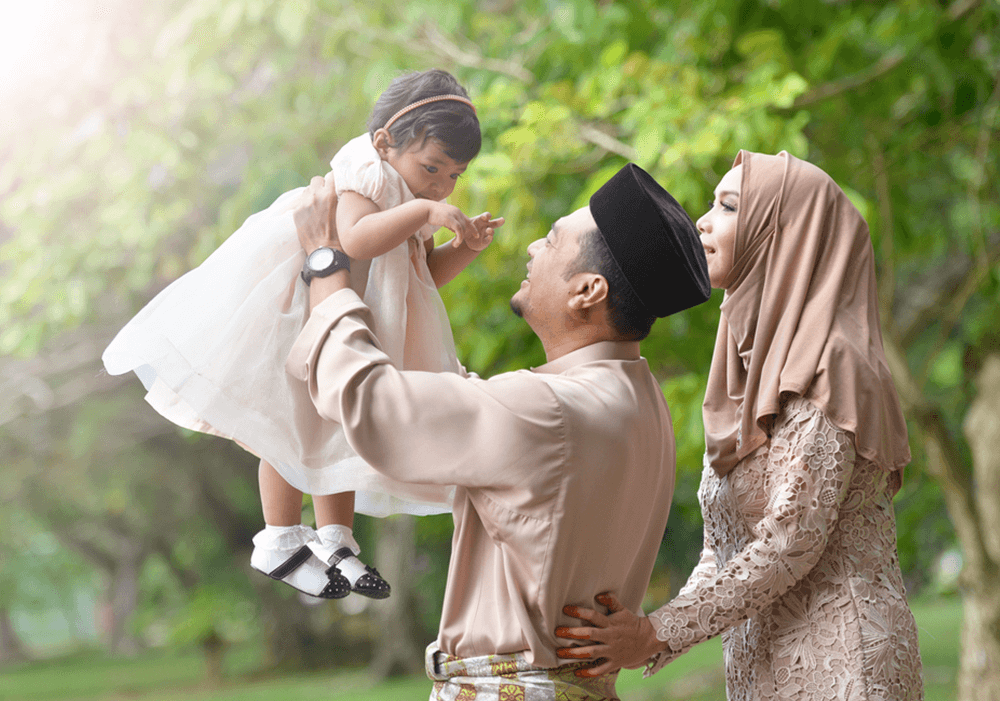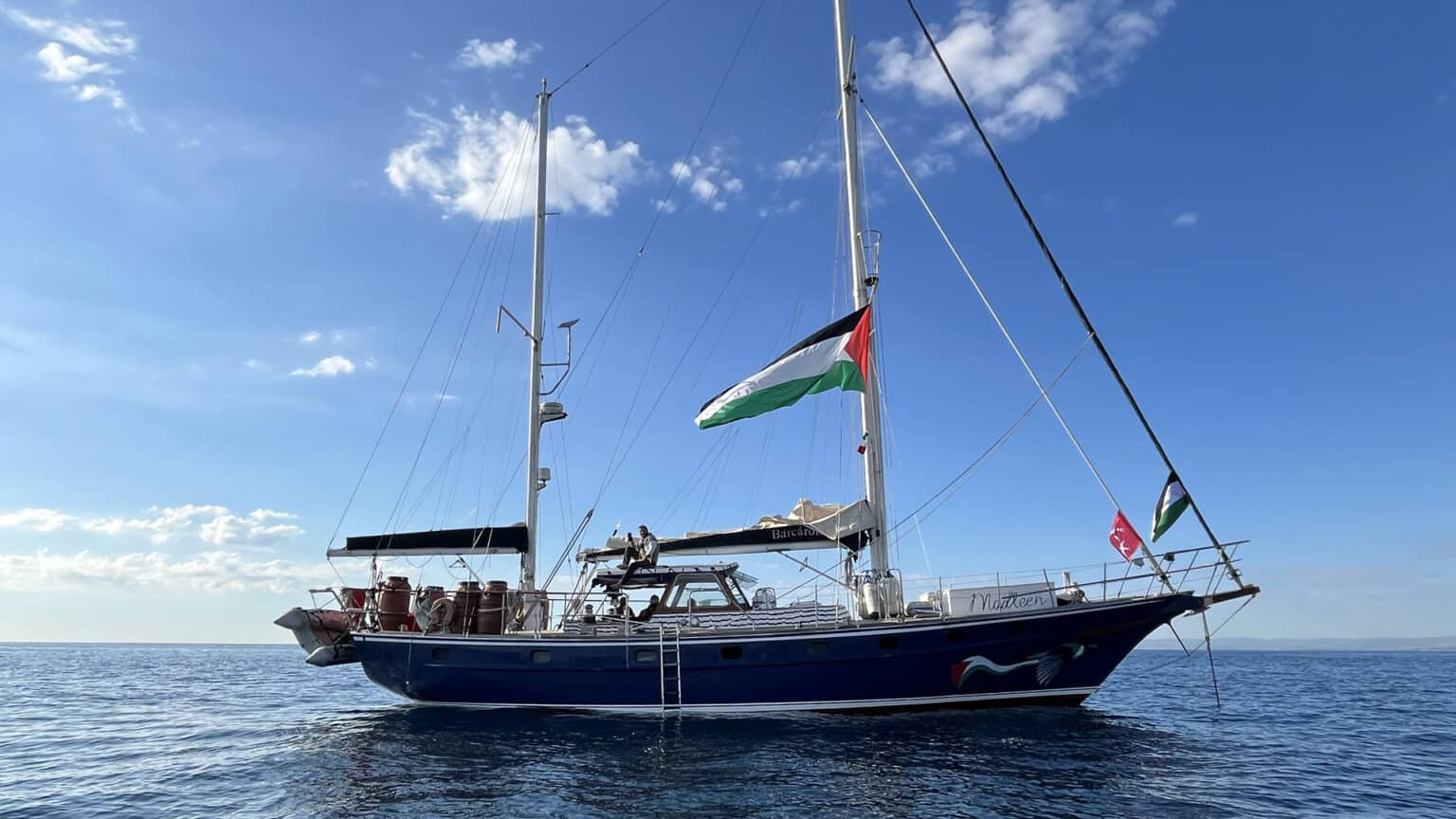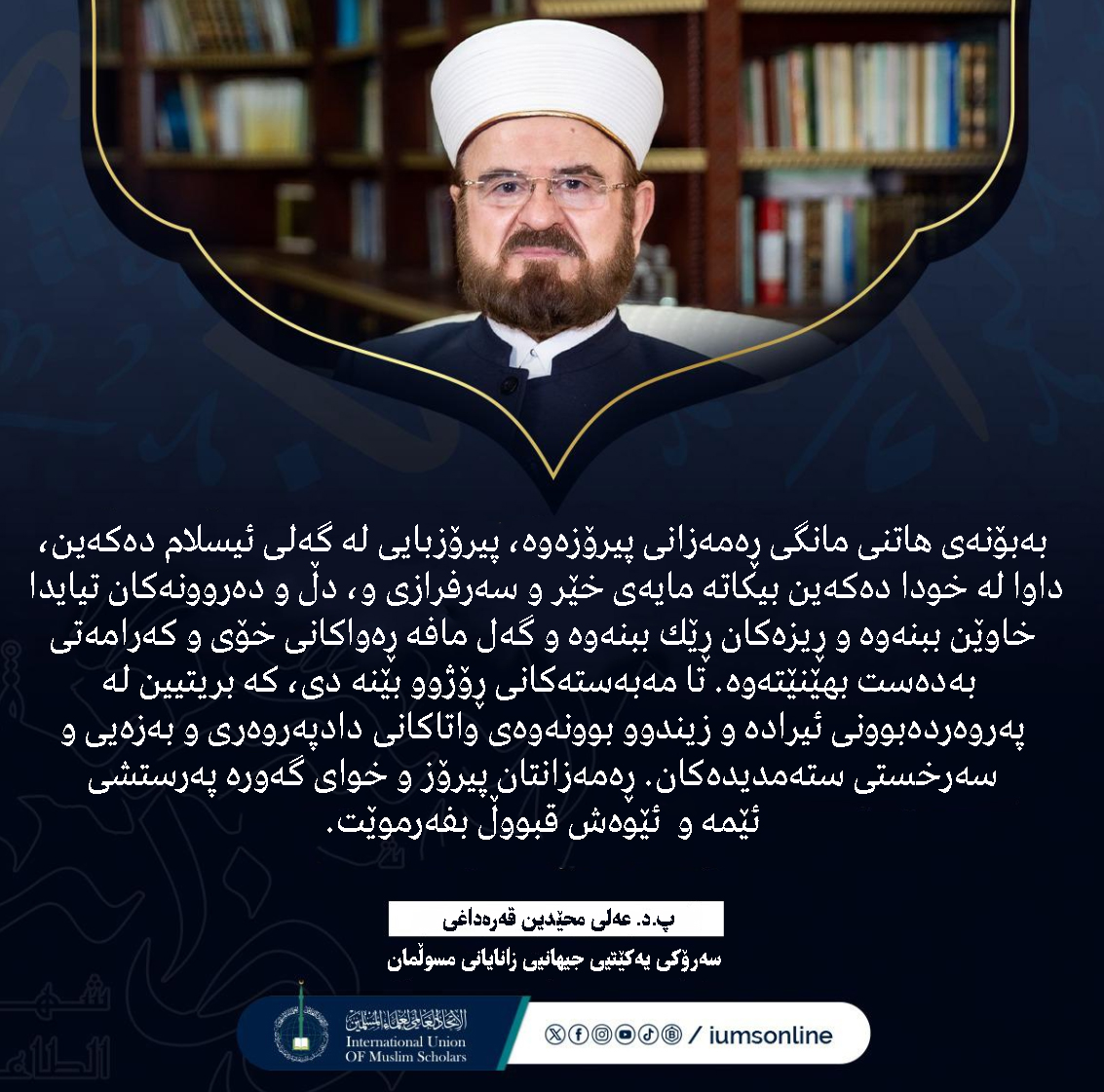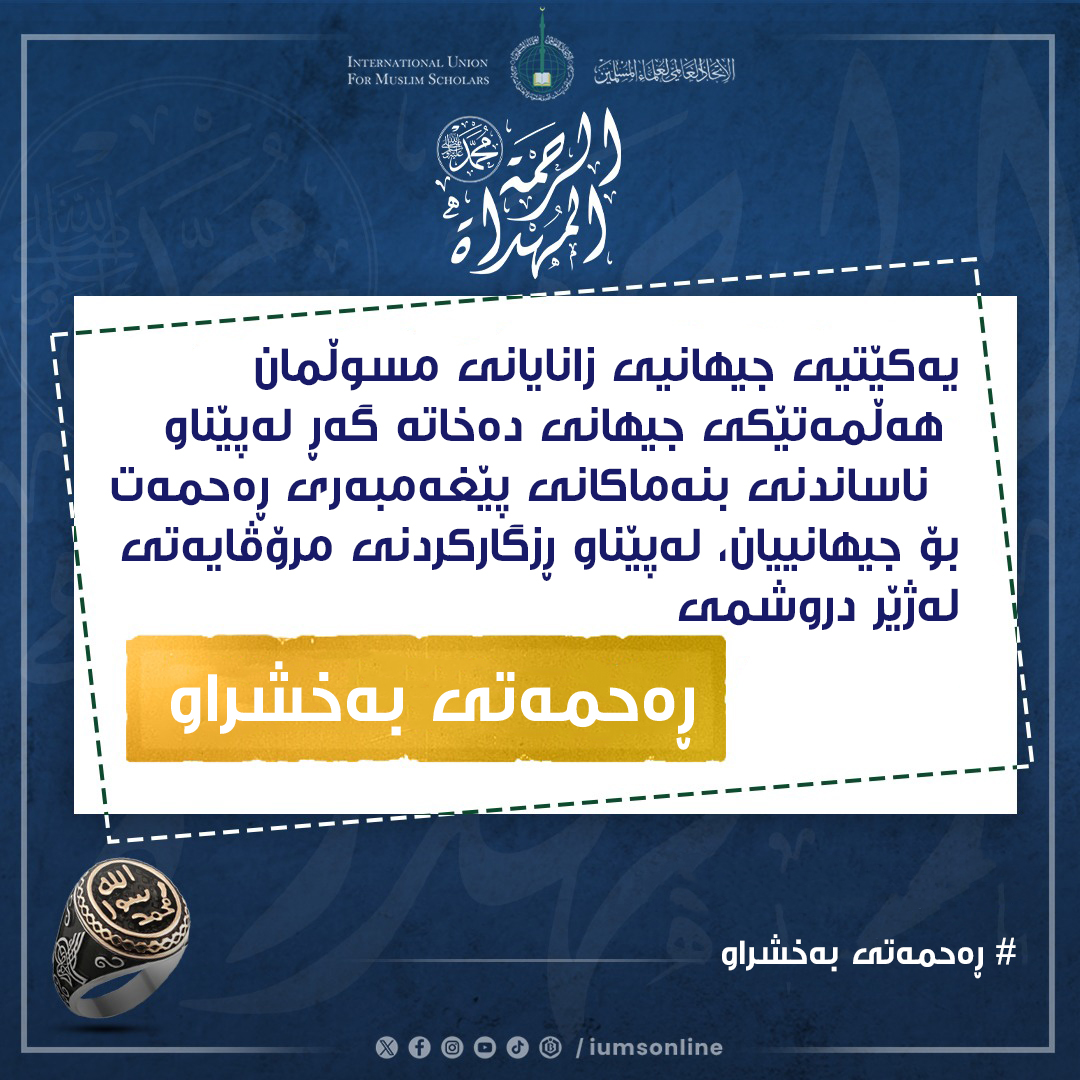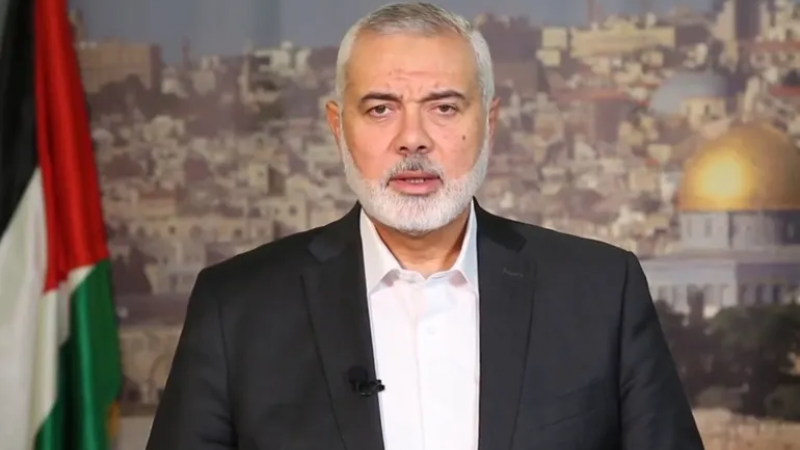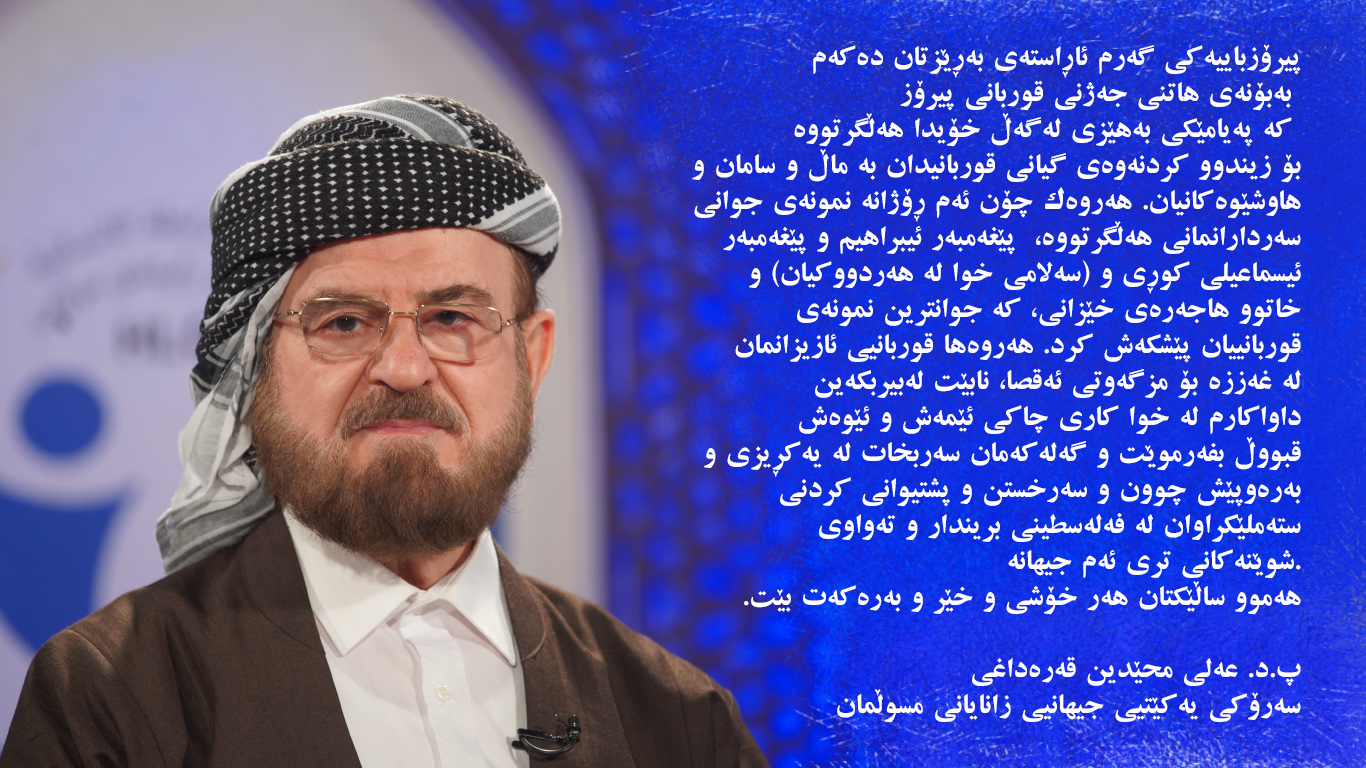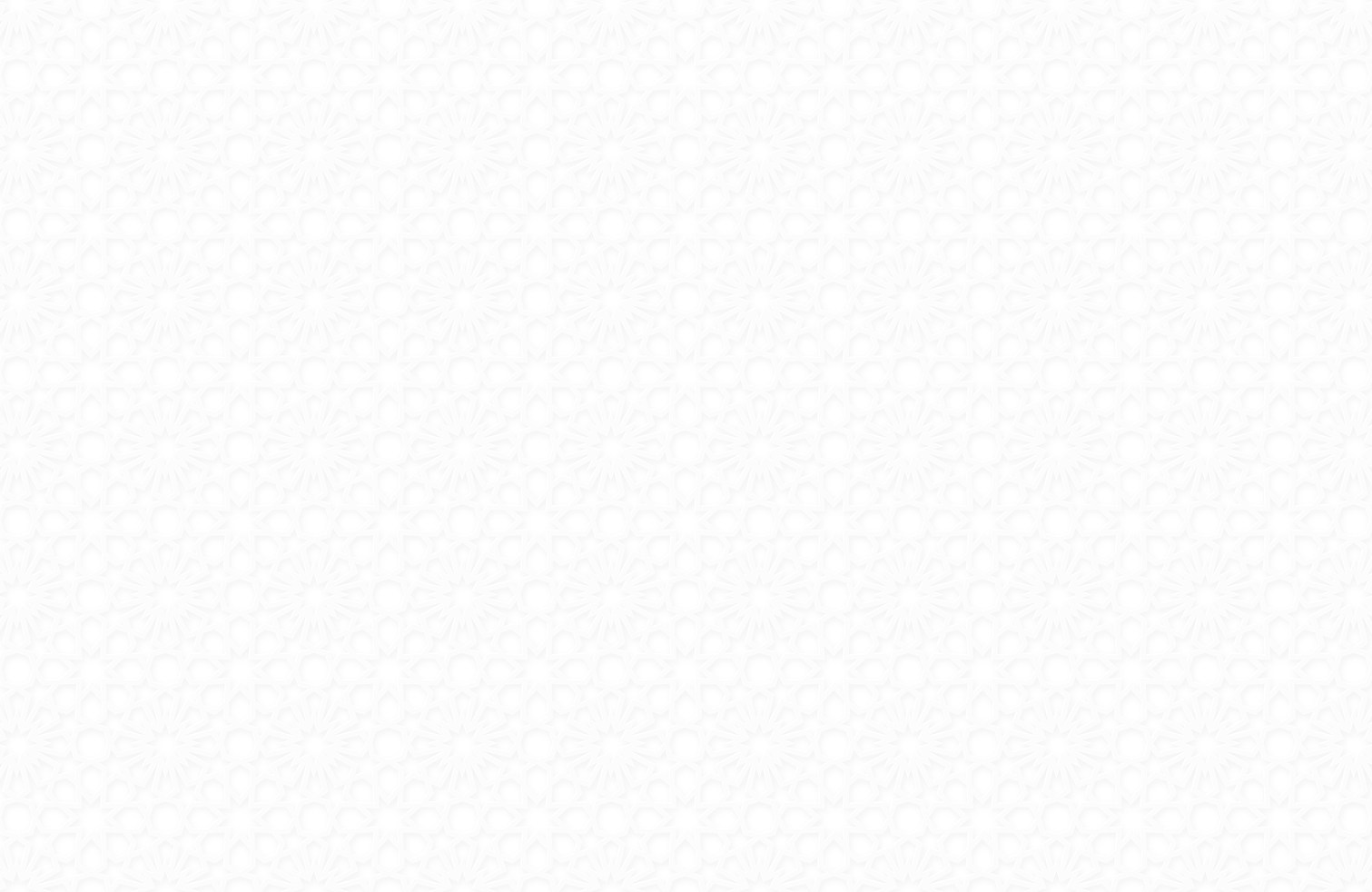May 10 2024
"I was born in the heart of knowledge, where mind and heart converged and united. I came into the world in the midst of Islamic jurisprudence (fiqh) and education... I emerged from the field of reform and innovation.
My path of learning was not merely a dry and lifeless novel of fiqh, nor was it isolation within buildings. Rather, it was a path connected to life, watered by the springs of knowledge and the experience of water.
When I was granted the fatwa license in 1970, I knew that:
Fiqh is not just memorizing texts and individual fatwas; rather, it is a responsibility that connects the world to human lives, and fatwa to reality. Also, by leading the consciousness and spirit of the people, it makes the scholar a successor to the Prophet (peace be upon him).
For me, issuing fatwas was never an intellectual capital. Not for a single moment did I forget that "the Mufti is either in paradise or in hell." Therefore, I never liked issuing hasty fatwas, but when necessary, I would respond according to God's will, not according to the will of politicians or groups and associations.
When the global COVID-19 pandemic spread, I saw confusion and disarray in fatwas between two extremes: extremism that paralyzed people's interests, and leniency that endangered their lives.
There had to be a precise balance, a balance that would not lean towards people's desires, but towards the objectives of Sharia. Therefore, my jurisprudential initiatives were an attempt to control this balance and connect Sharia with science, a path I had been traversing for years in economic, political, and medical issues.
Regarding politics, I never liked it for a day; rather, I only viewed it through my jurisprudential balance, which weighed actions, not personalities.
I was never a supporter or advocate of any group or faction. Instead, I always sided with the truth, wherever it was. Therefore, when the coup in Egypt happened, my stance was based on principles, not to support the Brotherhood, but to support legitimacy. When the coup in Yemen happened, I had the same stance. Because principles cannot be divided and do not accept two different scales.
For me, politics was never separated from religion, because Islam is not just a few religious rituals separated from life. Rather, it is a comprehensive system, as Al-Shafi'i says: "There is no act for which God does not have a ruling." Therefore, I never saw antagonism between fiqh and thought, antagonism between reform and politics, antagonism between fatwa and economics. All these branches in my mind originated from one source: religion is life, and the jurist who does not engage with reality will be bound by books.
In my relationship with Sheikh Yusuf al-Qaradawi, I was not a follower, but a colleague and friend. Just as I benefited from Sheikh Ghazali, Sheikh Shaarawi, and Sheikh Nadwi, I also benefited from him. My relationship with them was not one of following, but one of knowledge and respect. Some people asked about Qaradawi's influence on me, and I always replied that every influencer is influenced, but the independence of thought and mind is the foundation of a true scholar.
In the major issues of the nation, I never followed one side or one state. When they said I supported Turkey, I asked: Is standing with someone who rebuilds their country considered partisanship? When they said I neglected the Kurdish issue, I asked: Is supporting the oppressed Kurds since the eighties considered neglect?
I have always seen knowledge as a trust, and whoever carries that trust must not side with anything but justice.
In economics, I refused to say "Islamic economics is a lie," because a nation that governed the world for 1300 years could not have been without an economic system. Therefore, I did not see Islamic economics merely as the fiqh of transactions, but as a complete system that needs rooting and innovation.
When the International Union of Muslim Scholars was established, the goal was to become a comprehensive scientific institution, not to compete with Al-Azhar or be an alternative to it. Today, despite campaigns against it and doubts, the International Union of Scholars still stands firm, still has an effective role, despite the withdrawal of some individuals under pressure!
I see my future also within knowledge. I never saw knowledge as study or a profession for a day; rather, I viewed it as spirit and continuous movement. When some ask me: "Are you a jurist, an economist, or a thinker?" I say I am a student of knowledge who has not confined himself to old schools, just as he has not indulged in innovations separated from the foundations of the past; rather, he has tried to combine the two. To combine fiqh and thought, education and reform, past and future, according to the fiqh of balance.
Today, when I look at the reality of Islam, I do not see things as regressing, as some do. Rather, I see a nation that is rising and awakening.
A decade ago, Islam was not spreading as it is now. Today, Islam is everywhere. Standing against enemies is not a sign of weakness; rather, it signifies strength. The stronger the campaigns and efforts of enemies, the more it proves that Islam still remains in hearts, minds, and intellects.
This has been my life, and I will remain so, weighing things according to a jurisprudential balance, seeking reform through the balance of thought, and carrying knowledge with the balance of education."
From the archive, when journalist Wael Dahdouh was awarded.
